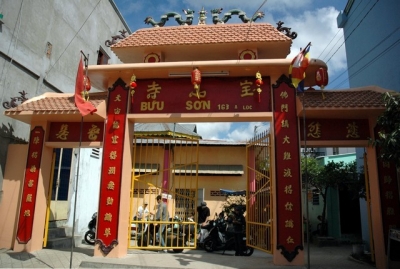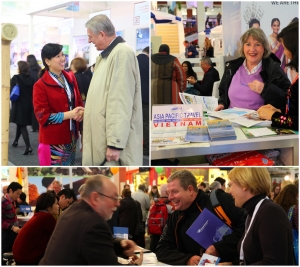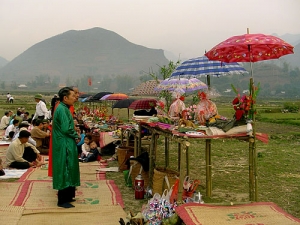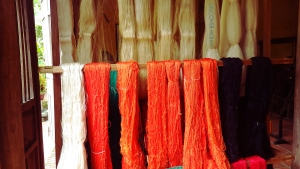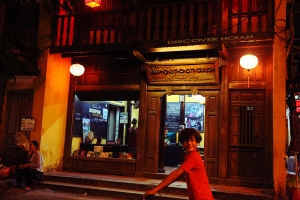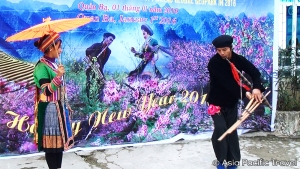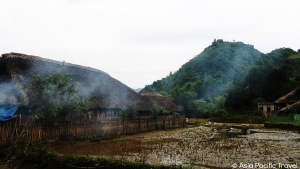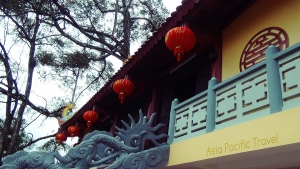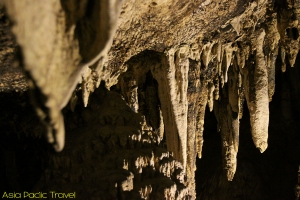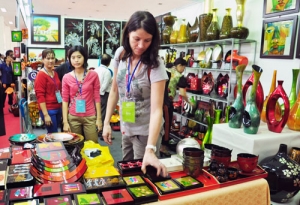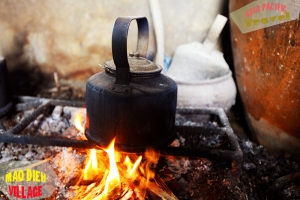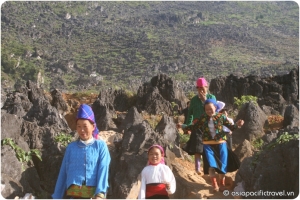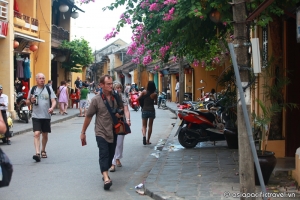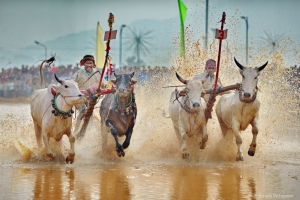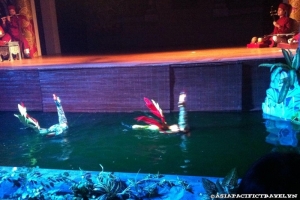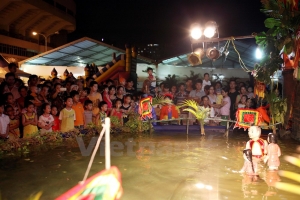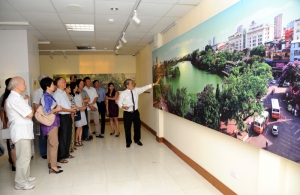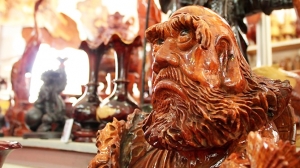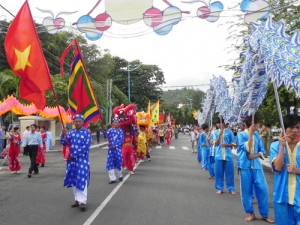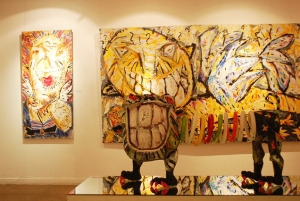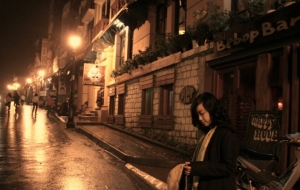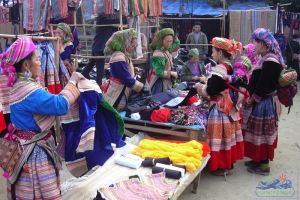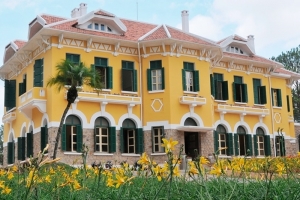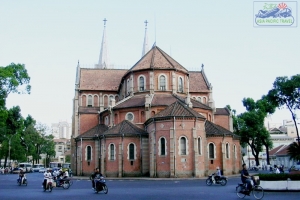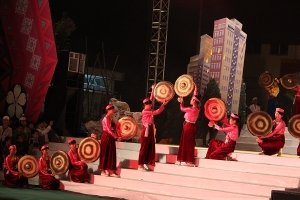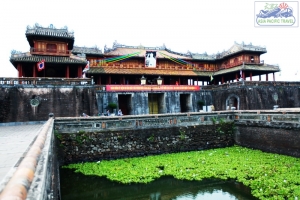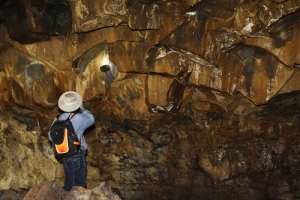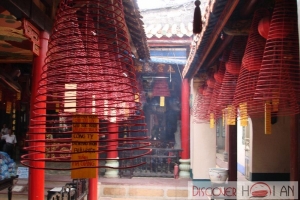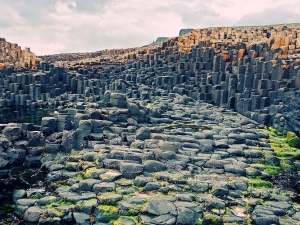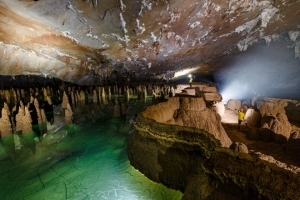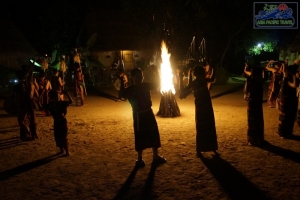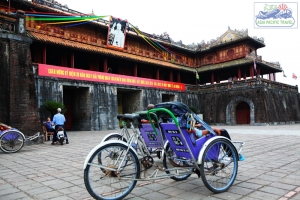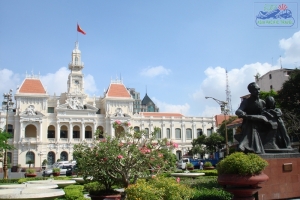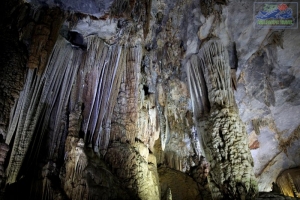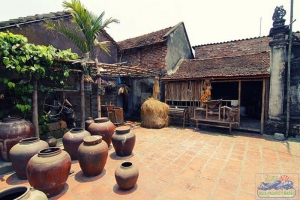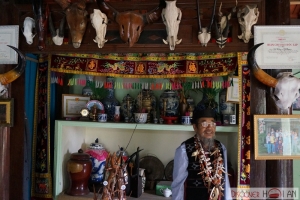In 1929, Mr. Kim Tong Ngo, the forth abbot of the pagoda, after one time suffering from strong illness, dreamed of Buddha. In the dream, he received the Buddha’s suggestion so he decided to remodel and renovate the pagoda by using clay to mold the worshipping statues, mascots instead of bronze casting or engraving wood.
Clay Pagoda is actually named Buu Son Pagoda. The pagoda was established by the Ngo family more than 200 years ago for their at-home mediation so it has no bonze and doesn’t receive offering money from guests. Nowadays, the pagoda is managed alternately by members of the Ngo family.
In 1929, Mr. Kim Tong Ngo, the forth abbot of the pagoda, after one time suffering from strong illness, dreamed of Buddha. In the dream, he received the Buddha’s suggestion so he decided to remodel and renovate the pagoda by using clay to mold the worshipping statues, mascots instead of bronze casting or engraving wood.

Firstly, he gathered clay then dry it. After drying, he put clay in the mortar, making it well-kneaded; filtered to leave all sand and impurities; and then used his imagination to form different-shaped statues. All finished products made from clay were covered by paint and varnish so they looked like being made from wood.
All 1991 big and small statues in the pagoda were engraved, subtly molded by him in totally 42 years. After finishing building pagoda and decorating statues, mascots, he suffered from a strong illness and died in age 62.
Of thousands of worshipping stuff, the most special and strange one is 13-floor Da Bao Tower because it is made from clay but no being skew. Beside Da Bao Tower, there is main visiting Buddha tower. Main tower contains a lotus which includes 1.000 petals and in the middle, there stand 1.000 tiny statues of Buddha.

Contemplating the tower and lotus, most of visitors think that those are works of professional sculptor instead of a person like Mr. Tong who has just finished the third class in the village school. Despite of not knowing anything about art, he created many statues, mascots with extremely sophisticated shapes and patterns.
In the last years of life, Mr. Tong stopped making statues to cast the candles which are located in the main halls of the pagoda.
To cast the candles as aimed, he went to Sai Gon to buy white wax (“bạch lạp”_ a kind of pure wax), cut it into smaller parts, heat them to melting point then pour them in the pattern.
In estimation, the candles had very large size so he couldn’t find the suitable patterns. After many time thinking, he decided to use corrugated iron, rolling it to make the pattern.
To successfully finish a candle, Mr. Tong had to work persistently because the secret for keeping the candle continuously burn without being off was that when pouring wax into the pattern, he didn’t let the wax have horizontal defects. To implement this, he had to pour wax frequently both night and day during a month. After a month, when the wax was cool, it was taken out of the pattern. It took him several continuous months to make six big candles which each was 200kg heavy and two smaller ones which weighed 100kg each.
The two smaller candles have been burnt since the day Mr.Tong died, until now 39 years have passed. There is a weird thing that during 39 years, the two candles have never been off despites of any effects.
After the two smaller candles are off, a couple of big candles will be burnt next. It’s estimated that each one will light in about 70 years. So if burning one candle at a time, it takes over 400 years more to burn all.


